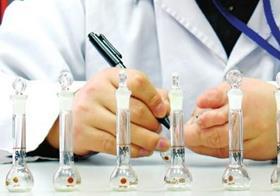
A new tissue culture laboratory has opened its doors in Zamboanga City in the Philippines, targeted at breeding new forms of banana to deal with climate change.
The P10m (US$218,000) lab plans to develop new varieties of bananas that are resistant to pests and can deal with changing climate conditions in the Philippines, according to Peterna M Saavedra, associate dean of the College of Agriculture of Western Mindanao State University, which runs the lab.
The facility is currently concentrating on banana propagation in the 200ha of land set aside for trials, and has already had some success, reported BusinessWorld.
“Our banana variety can produce more seedlings than the traditional strains,” Ms Saavedra said.
The Philippines’ government has been at the centre of a push to develop new crop varieties to increase food production in the face of rising population and climate change.
Agriculture secretary Arthur Yap called on the Bureau of Plant Industry (BPI) and the country’s experts “to develop better-engineered food crops that would withstand the devastating effects of climate change, which has become the single biggest challenge to the country’s food security goals and the foremost threat to global farm production.”
“You have to come up with better-engineered food crops. You have to move our farms to better quality crops and that begins with seeds. You have to move us to better planting technology because population growth remains unparalleled.”
The new Zamboanga City facility will eventually work with other fruits and vegetables, said Ms Saavedra.
“What’s good about this facility is that we are not just developing new technology here but we are also training our students to be knowledgeable in agriculture techniques,” she told BusinessWorld.



